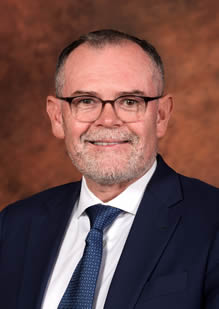Minister D George (Dr.): Keynote address at the Finance in Common Summit
27 Feburary 2025, Cape Town
Good afternoon,
South Africa is one of the most biodiverse countries in the world, the home of many iconic plant and animal species. These have long been integral to our culture, spirituality and livelihoods as Africans, and also highly valued across the world.
South Africa’s biodiversity is not only a national and cultural asset, it is also a source of economic prosperity through the sustainable use of a wide variety of plants, and wildlife. Our natural assets attract millions of tourists annually to the Kruger National Park, Kirstenbosch Botanical Gardens and Isimangaliso Wetland Park, to name only a few.
In 2023, South Africa published the White Paper on Conservation and Sustainable Use of South Africa's Biodiversity, a government policy that aims to protect our country's biodiversity. It outlines four strategic goals of conservation, sustainable use, equitable sharing of benefits and inclusivity. We regard this white paper as our own strategy to implement the Kunming/Montreal Global Biodiversity Framework adopted at that Convention
In 2023, South Africa published the White Paper on Conservation and Sustainable Use of South Africa's Biodiversity, a government policy that aims to protect our country's biodiversity. It outlines four strategic goals of conservation, sustainable use, equitable sharing of benefits and inclusivity. We regard this white paper as our own strategy to implement the Kunming/Montreal Global Biodiversity Framework adopted at that Convention
Much is being done, with the biodiversity sector having established business and biodiversity initiatives with a number of production sectors aimed at enhancing sustainable production. For example, the Biodiversity and Wine Initiative in 2004 produced biodiversity guidelines for the wine industry (South Africa is the world’s eighth largest wine producer). There is a massive financial gap when it comes to funding in the biodiversity sector. This gap is both global and local. Some estimates put the global biodiversity funding gap at between 598 and 824 billion US dollars per year by 2030.
In 2022, the South African Government, with the support of the UNDP-Biodiversity Finance Initiative (UNDP-BIOFIN), launched the first Biodiversity Investment Portal to match investors with bankable projects to support the growth of the biodiversity economy in South Africa. Recently, the portal successfully secured its first investments for two important biodiversity stewardship sites. This achievement, made possible by technical assistance from UNDP-BIOFIN, is an important step in promoting conservation, ecotourism, and community well-being in the country.
The first investment was made by the United States Agency for International Development (USAID) through the Africa Conservation & Communities Tourism Fund, which expressed interest in the projects listed on the investment portal. This resulted in the signing of two agreements totaling approximately US$ 450,000 (to be provided through in-kind contributions). The two beneficiary sites, the Madikwe Barokalogadi Community Property Association (CPA) in the North West and the Blyde River Canyon Nature Reserve, will use the investment to develop a management plan and implement a biodiversity credit system.
This is a small start, We need access to scaled-up new and additional and predictable grant and highly concessional finance that would allow for greater mobilization and leveraging of public and private finance. Whilst Multilateral public finance is critical for developing economy countries to be able to address these complexities, mobilising private and other sources of finance is the only way that we will meet the scale of the endeavour before us. Philanthropic efforts have also proven to provide much needed support to environmental initiatives. We need to optimise the alignment of these investments to ensure funds are targeted and directed to the most vulnerable. This calls for significant reform of the global financial system and of multilateral development banks. The cost of capital is too high and mechanisms such as debt for biodiversity swops; payment for ecosystem services, as well as greater availability of grant financing and concessional loans must be considered in the context of achieving sustainable financing mechanisms for developing economy countries.
We also need to urgently address the need for liquidity in fiscally constrained countries. We need to put in place measures to ensure that much-needed finance does not lead to the increased debt burden on African and other developing economy countries. Credit enhancement approaches are readily available to the private sector, but the urgent reforms are needed in the public sector.
The cost of capital impedes the ability of developing economy countries to invest in sustainable infrastructure and technologies. The support of developed economy countries and Multi-Lateral Development Banks in reducing the cost of capital to foster investment in developing economy countries is important. We also need to consider how to include national assets on the national balance sheet.
As a primary outcome of its G20 Presidency this year, South Africa will explore ways that the G20 can leverage opportunities to increase the scale and flows of climate finance critical for both mitigation and adaptation efforts and ensure that the required investments reach the most vulnerable members of society. South Africa has identified that there is a pressing need for a new financing model aimed at addressing these complexities. It is envisioned that this model be a multilayered intervention that will ensure equitable access and shared responsibility among nations.
South Africa has experienced increasing incidents of poaching of our natural assets, in particular our pangolin, rhino, abalone and plants. We must be able to access more funding to support our rangers at the frontline of the fight. We will also be engaging with countries driving demand for the illicit trafficking. If we disrupt the financial flow, we can slow the poaching.
I thank you.
For media enquiries, please contact
Thobile Zulu-Molobi
Mobile: 082 513 7154
E-mail: tmolobi@dffe.gov.za
or
Peter Mbelengwa
Mobile: 082 611 8197
E-mail: pmbelengwa@dffe.gov.za


